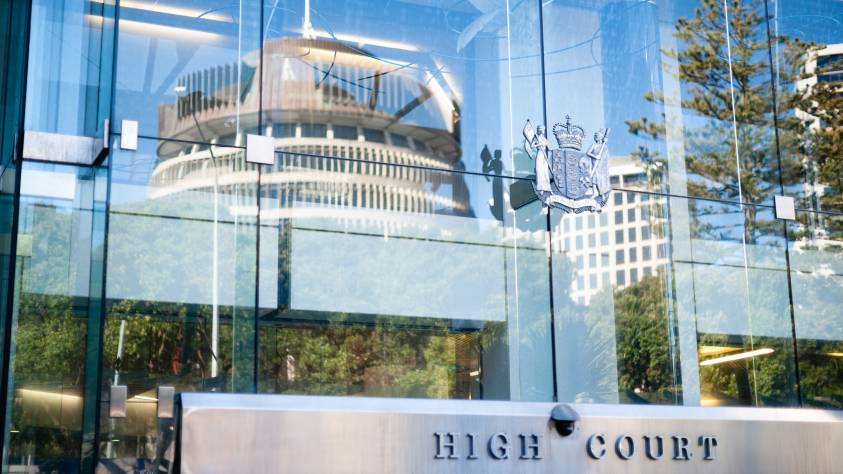Case testing the legal basis for New Zealand’s COVID-19 response is heard

Borrowdale v Director-General of Health and Attorney-General (27–29 July 2020)

A rare full bench of the High Court sat this week to hear a constitutionally significant case brought by Dr Andrew Borrowdale, which questioned whether certain orders made by the Director-General of Health in response to the COVID-19 pandemic were a lawful exercise of his powers.
Following an invitation by the High Court, the New Zealand Law Society | Te Kāhui Ture o Aotearoa was granted leave to intervene on the basis that it represents the legal profession in New Zealand and had the ability to draw on the expertise of its specialist committees to address the issues raised by Dr Borrowdale.
The Law Society provided written and oral submissions as a neutral party in the case, noting that the proceedings were important for the operation of the rule of law and the administration of justice, and were of significant public interest.
At the heart of the case was the manner in which Health Act powers of an emergency character are properly interpreted in the context of a global pandemic, in a way that balances the rights of the individual, the democratic foundation of our constitution, and the rule of law.
The three key aspects of Dr Borrowdale’s argument related to:
On the first claim, the Law Society submitted there was a disjunct between the Government’s initial public communications and the formal restrictions imposed by the 25 March order.
In the first nine days of the lockdown, there was no legal restriction on people visiting others in private homes, travelling any distance to exercise, or engaging in outdoor recreational activities in public spaces if they maintained physical distancing. Yet during this time, the Government gave the impression that these activities were legally prohibited.
When questions were raised, the Government addressed the situation with a second order, which required all persons to “remain at their current place of residence … except as permitted for essential personal movement”.
The Law Society told the Court that the rule of law required the Government to clearly distinguish between actions that were unlawful and those that were lawful but 'socially undesirable' and 'discouraged’. The Law Society submitted that communications by Government officials did not clearly draw this distinction in the first nine days of the lockdown. Instead, they left the impression that the legal requirements of the 25 March order were significantly wider than they actually were.
In relation to the powers conferred under sections 70(1)(f) and 70(1)(m), the Law Society submitted that the section 70 powers at issue are necessarily wide, given their purpose and context. They are designed to cater for a range of emergency situations of uncertain character, where medical experts need to determine an urgent course of action. While broad, there are a number of constraints imposed by the Health Act and related legislation on the section 70 powers, and these act as safeguards on the exercise of the powers.
In addition, the Law Society submitted that the section 70 powers are only intended to facilitate an immediate short-term response to a public health crisis, and do not provide the framework for a response over the longer term. The Law Society’s perspective was that the democratic nature of our constitution means that there comes a point in the management of an ongoing crisis where it is incumbent on Parliament to pass bespoke legislation in order to ensure critical policy decisions are made in accordance with ordinary Cabinet decision-making conventions. Parliament did meet that responsibility in this case, with the enactment of the COVID-19 Public Health Response Act 2020.
On the issue of the delegation of decision-making powers, the Law Society submitted that the definition of ‘essential services’ was of critical importance to the Government’s strategy adopted under the Orders. However, the definition referred to a list of ‘essential services’ on the covid19.govt.nz website, which was frequently updated with no clear indication of how, when or why the list was changed. This left the law inaccessible and opaque as to whether a certain business could lawfully operate during Alert Levels 3 and 4.
The Court released a synopsis ahead of the hearing to assist the public in understanding the key issues. The Law Society’s full submission can be read here.
Chief High Court Judge Justice Thomas, Justice Venning and Justice Ellis presided over the three-day hearing. Their Honours’ decision has been reserved.